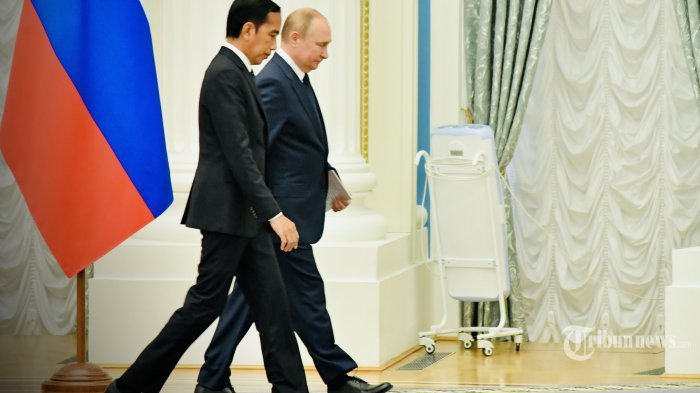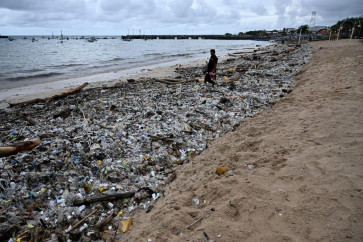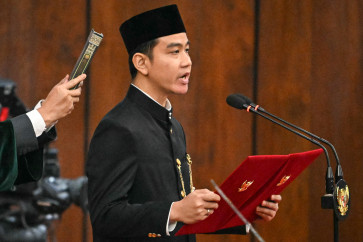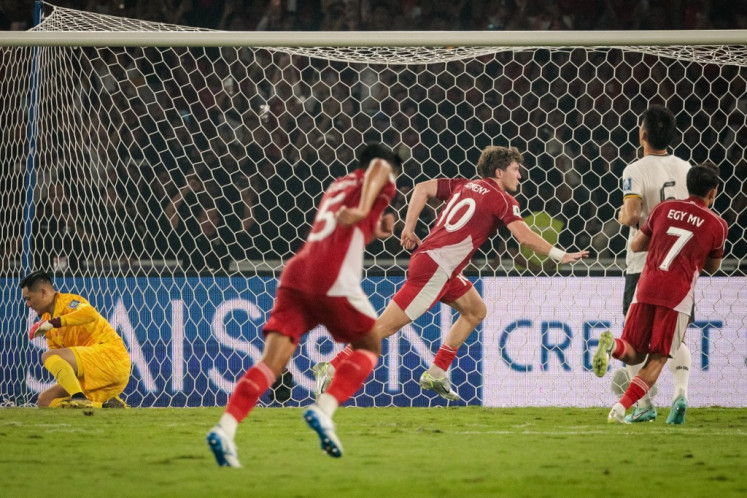Indonesia’s diplomatic hat trick
President Jokowi’s mission has raised awareness that the only option is to stop, not prolong, the war.
Change text size
Gift Premium Articles
to Anyone


The world has continued to confront extraordinary and unprecedented challenges, ranging from the devastating socioeconomic impacts of the pandemic to geopolitical conflict, that have divided the international community when unity is needed the most.
The end of the pandemic will not happen anytime soon. Neither will the war in Ukraine or geopolitical tensions as economic and climate crises haunt us. The ravaging forest fires in Europe and the United States should serve as a reminder of the need for solutions through global collaboration. Without such cooperation, things will get worse, and many countries, like Sri Lanka, will pay a devastating price.
Indonesia’s Group of 20 presidency comes at an unprecedented juncture, where leadership with credibility, credentials and consistency on principled positions is required.
President Joko “Jokowi” Widodo’s recent diplomatic journey is, therefore, unique, as he had to walk a thin line to advance the cause for humanity while promoting recovery and world peace. It began at the end of June in Elmau, Germany, where he attended the Group of Seven Summit as partner. Then he visited Kyiv and Moscow, before the G20 Foreign Ministers Meeting (FMM) in Bali on July 7 and 8.
In my view, President Jokowi has scored a hat trick in advancing Indonesia’s diplomacy. The following are the reasons.
First, Indonesia’s G20 presidency confronted an exceedingly tough challenge as the war in Ukraine started. Maintaining the integrity and unity of G20 as the primary global forum on global economic and finance has become the trickiest issue.
The President attended the G7 summit with three main objectives in mind: ensuring an effective G20 for all, promoting peace in Ukraine and addressing the pressing global food and energy crises. The three missions received positive responses and paved the way for his trips to Ukraine and Russia.
The current challenges put the world’s future on the line. If the Ukraine war drags on, global growth is predicted to plunge even further, while inflation is projected to soar to 9 percent in Organization for Economic Cooperation and Development (OECD) countries, and threats of stagnation persist. Food and energy shortages will further exacerbate the crisis while the climate crisis worsens.
Clearly geopolitical conflicts endanger humanity. A conducive environment to stop the war, therefore, is critical. Bringing parties to the negotiating table should be the most urgent priority. President Jokowi’s mission has raised the awareness that the only option is to stop, not prolong, the war. International law, the United Nations Charter and multilateralism should be upheld by all to rekindle hope for peace.
Second, the President’s meetings with Ukrainian President Volodymyr Zelensky and Russian President Vladimir Putin were monumental. The close encounters also demonstrated Indonesia’s characteristic peace-loving gesture as a friend of both Ukraine and Russia.
Addressing humanitarian, food and energy crises should be placed as the world’s pressing agenda for humanity. Dialogue and negotiation should be the only tool and instrument. The mission may not immediately end the war, but it will gradually encourage the narratives of dialogue and ceasefire.
The issue is delicate and complicated and demands strong leadership to start voicing the urgency to stop the war and uphold peace. Indonesia’s diplomacy is taking the lead and will continue so for the sake of peace and humanity, as mandated by the Constitution.
Third, the G20 FMM capped the President’s diplomatic endeavors to pursue peace and global unity and address the pressing issues of humanity. The FMM was attended by all G20 foreign ministers who substantively deliberated priority issues such as strengthening multilateralism and addressing global food, energy and climate crises.
Despite differences, the group managed to return to the right track, regain its credibility and help the world recover from the devastating impacts of the multidimensional crises. The G20 FMM has bolstered the initiatives to stop the war and resort to dialogues and negotiation.
Although the situation remains uncertain, momentum has been created and should be maintained in continuing efforts to send messages of peace. No one is ready for a long and exhausting war. Therefore, the international community should seize this very momentum to build a win-win solution, not a zero-sum game.
Despite its fragility, the agreement signed by Ukraine, Russia, Turkey and the UN to create a food and humanitarian corridor in the Black Sea to release grain to the global market is a crucially positive step. The implementation of the agreement is the most critical to reduce the threat of a food crisis. If this happens, it represents a partial ceasefire and hopefully will lead to more.
It is, therefore, incumbent upon us all to continue the campaign for peace and humanity.
President Jokowi’s affirmation that “Indonesia does not have any other interests but to see the war end and the supply chains of food, fertilizer and energy fixed because it is about the fate of the livelihoods of hundreds of millions or billions of people” was the only intention of Indonesia’s diplomatic mission. His invitation to world’s leaders to collaborate in reinvigorating multilateralism and a peaceful and collaborative spirit reaffirms that world peace is possible.
Upholding peace, sewing global unity and bridging distrust in the worst divisive global environment ever today remains Indonesia’s priority. Maintaining the G20’s credibility and inclusiveness to contribute to solutions to the world’s problems is the critical objective of Indonesia’s diplomatic journey.
It is, therefore, not an exaggeration to say that Indonesia’s diplomatic “offensive” to wage global peace is the DNA of its diplomacy. The successful convening of the G20 FMM was also shown by the effective utilization of the Bali FMM platform for dialogue. One of the most prominent achievements, perhaps, was the five-hour constructive meeting between the Chinese foreign minister and the US secretary of state.
We are fully aware that the end game is not for Indonesia to decide, but Indonesia stands committed to continue playing its part.
***
The writer is the director general for American and European affairs at the Indonesian Foreign Ministry and the nation’s former ambassador to ASEAN (2010-2015) and Singapore (2015-2020). The views expressed are his own.









